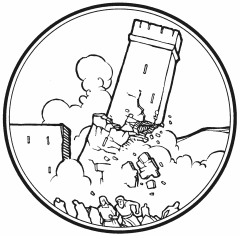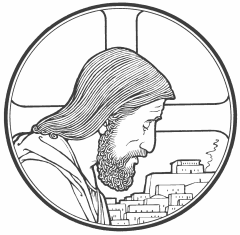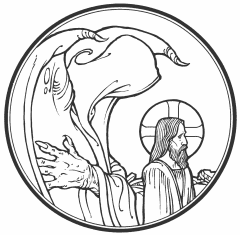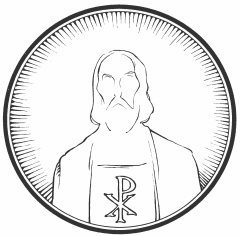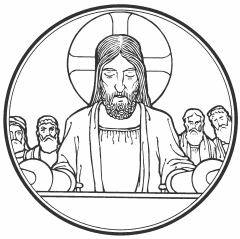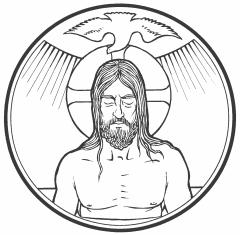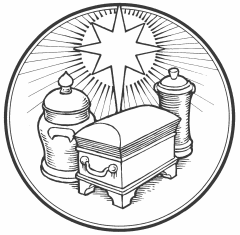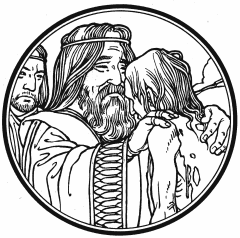 Grace, mercy, and peace to you from God our Father, and from our Lord and Savior, Jesus Christ, amen. The text for the sermon is the Gospel, which was read earlier.
Grace, mercy, and peace to you from God our Father, and from our Lord and Savior, Jesus Christ, amen. The text for the sermon is the Gospel, which was read earlier.
Children can be such a blessing and they can equally be a curse. They can bring such joy to a parent’s heart and they can also bring such sorrow as well. This has been the case from the beginning of creation. Adam and Eve brought great joy to their Father and then they also brought great sorrow following the fall into sin. Cain and Abel brought joy to Adam and Eve but that joy quickly turned into sorrow following Abel’s murder. The theme continues throughout the Scriptures and that is the basis of Jesus’ parable to the tax collectors, sinners, Pharisees, and scribes.
As Jesus begins the parable, one might imagine that at one time, there was a good relationship between the father and his two sons, or at least we hope. But the younger son has something important to say to his father: “Father, give me the share of property that is coming to me.” Allow me to translate for you what this son said. “I wish you were dead so I can get my death benefits from you.” What a crude and outrageous request that the son makes. Jesus does not give us an idea of how old the father is, but whether he is young or old is irrelevant. The son doesn’t care about his father; he just wants the inheritance. I don’t know about the rest of you but if I were to make that request of my father, I would have been knocked into next week. That is not a request that a child makes of his father and hopes to walk away from it. But instead of knocking the son into next week, the father grants the son’s request and divides his property between the two sons. Shortly after that, the younger son leaves.
This son must be feeling really good about himself. He stood up to his father, told him in no uncertain terms that he wished that he were dead in order to receive his inheritance. The father gives it to him, no questions asked, and now here he is with the world at his fingertips. Everything must be going right for this young man! Everything is going well until the son starts to sow his wild oats. At that moment, he went from having the world in the palm of his hand to eating the slop of pigs.
Have you realized who the young son in the parable is yet? It is a person that you are very familiar with, for the young son is you! You are the one who is greedy, seeking what you can from your Father and squandering it. Our heavenly Father has given to us richly. Martin Luther writes in his explanation to the First Article of the Creed: “He richly and daily provides me with all that I need to support this body and life.” He has created us, He has given to us life, He provides for all of our needs and we cannot keep one simple rule: “And the LORD God commanded the man, saying, “You may surely eat of every tree of the garden, but of the tree of the knowledge of good and evil you shall not eat, for in the day that you eat of it you shall surely die.”” Instead of abiding by the Father’s command, we squandered all that we had in the Garden of Eden and were forever cast out of it.
As we return to the parable, we see the son living in utter poverty, with nothing to eat but the slop he is feeding the pigs. He realizes that he has done wrong by his father and sets out to return home in hopes that his father would make him like one of his hired hands. He says, “I will arise and go to my father, and I will say to him, “Father, I have sinned against heaven and before you.””
Did you hear what the young son said? What is the basis of the speech he is planning to give to his father? It’s the same thing you said a few moments ago: we are sinners that are in need of forgiveness. This is the son’s confession of sins. He knows that he has sinned. He knows that he has broken the Fourth Commandment. He knows that the only thing for him to do is to go and confess his sins and ask for forgiveness from his father.
Isn’t that what we did at the beginning of the service? Didn’t we acknowledge our sin to our heavenly Father? Didn’t we confess how we have failed to keep His commandments and statutes and instead turn to our sinful ways? There is only one thing for us to do: confess our sins, return to our Father, the fountain and source of all goodness, the one who is able to forgive us for all that we have done wrong, all that we have done contrary to His divine Word. We no longer can live off of the slop of sin, for it is keeping us from our Father in heaven. We return to Him in prayer, asking for our sins to be forgiven because we are indeed sinners in need of salvation.
For the young man, as he is on his journey to his father’s home and is still a great distance out, his father saw him and ran to him. What the father does is out of character in many ways. In those days, a man of his stature would not have run because he was considered an elder, a man of certain esteem. Running in such a way would have been embarrassing. Secondly, why would he run after his son who more or less told him he wanted him dead and embrace him? It doesn’t make sense what the father did. But it does make sense because this was the father’s son. Even after all that the son has done in his wasteful life, at the end of the day, this is his son. He doesn’t chastise him for squandering all that he gave him. He doesn’t give him the “I told you so” speech. No, he gives to him the royal treatment: jewelry, clothing, food and drink, a great party – the works.
For you and I, our heavenly Father does nothing short of that for us. He gives to us the “best robe” as we are robed in Christ’s righteousness. You and I receive from God the gift of His name in our Baptism, marking us as those who have been redeemed by Christ. We are given that sonship that the young son had given up before his journey. We receive the fattened calf that was killed for the party, but we don’t receive it in the form of a calf. We receive it in the form of the Lamb of God who takes away the sins of the world. This Lamb of God was slaughtered for us upon Calvary, His blood washing over us to forgive us all of our sins in His sacrifice for us. The words that the father uses in the parable are descriptive of us as well: “For this my son was dead, and is alive again; he was lost, and is found.” That’s us. Dead in our trespasses of sin, but made alive in the waters of Baptism. The image of God lost upon us in the Fall, but found and restored again by Christ’s death and resurrection.
Wouldn’t it be nice if that is how the parable ends, how our life ends? Unfortunately, there is more to both stories. In the parable, there is still the older brother, the one who did right by his father all these years, never disobeying, always being the “good son.” He reminds his father of the years of dutiful service he has rendered. But his virtue was not rewarded with even a young goat for celebration. Here Jesus is drawing a portrait of the Pharisees and experts in the law. They were proud of the dutiful way in which they observed all of God’s commands. They felt fully justified in criticizing Jesus for His fellowship with sinners and tax collectors. They were not about to join in joyfully celebrating the repentance of a sinner.
Isn’t that us? Aren’t we always making it all about us and what we’ve done rather than what God has done for us in Christ Jesus? Fortunately for us, it is the Father who has the last word in all of this. He is the one who never turns His back on the children who turn their backs on Him. He is the Father who comes running to us after we have run away from Him. There is always hope for the prodigal son and so there is hope for us as well. In Jesus’ name, amen. Now the peace of God that passes all understanding, keep your hearts and minds through faith in Christ Jesus, amen.
